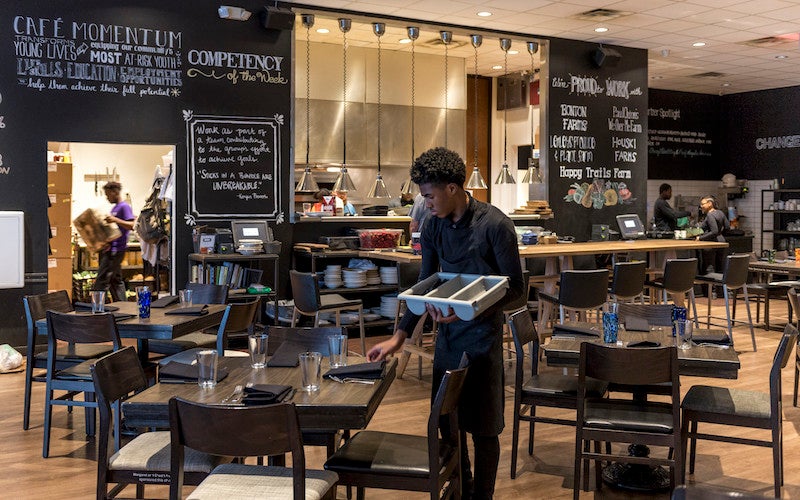Learn how Cafe Momentum created a business that works
Define the Problem
Incarcerated youth in Texas experience a high recidivism rate, which is often as a result of the lack of opportunities and support they receive upon exiting the prison system.
Design Impact
To mitigate this, Chad and his team developed a 12-month restaurant training program in which men and women coming out of the prison system could find paid employment and support services that would help them move forward in a more positive, stable way.
Build
After they designed the business model, the next step was to secure funding to start the restaurant and pilot the program among a small group of formerly incarcerated youth.
Scale
The Cafe Momentum team plans to expand to open as many restaurants as possible, while staying true to their mission of providing quality services. In the end, Chad hopes that there will be more Cafe Momentum locations than Starbucks!
